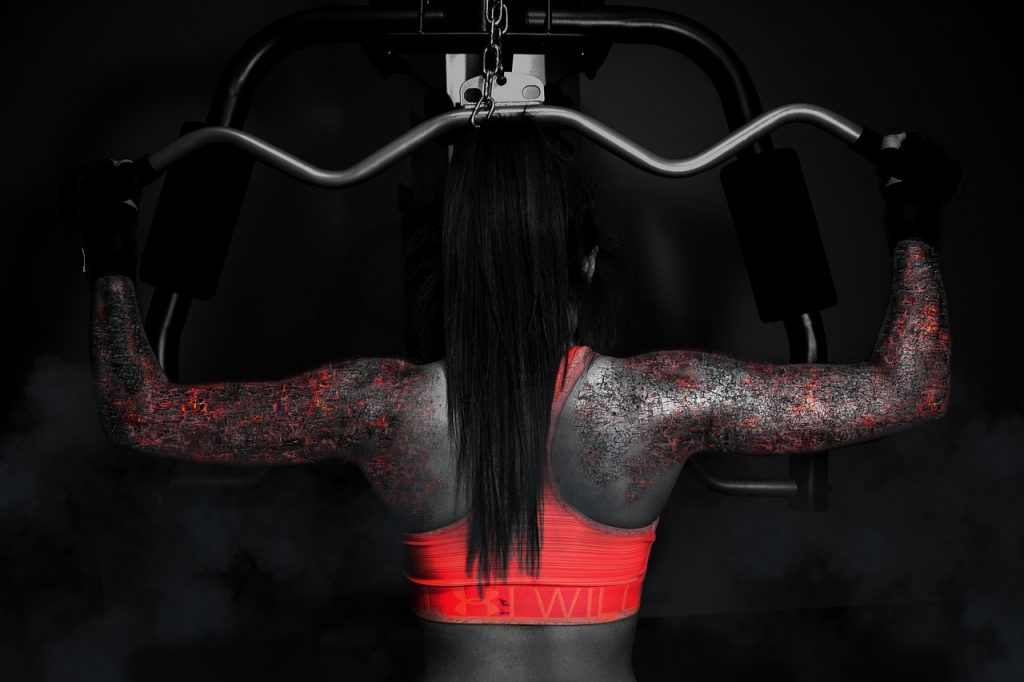
It’s 2 AM and this side…no wait, not this side either, ugh. Okay, no side is comfortable. Frustrated, here I am sleeping in some weird diagonal before my body literally gives up and says, “LOL, okay, I’m actually bored of bothering you…I’ll wake you up in four hours.”
This is how most of my nights go. Some days are definitely better than others and there have been times where I’ve gone a few weeks or so pain-free, but usually, the pain is waiting to be triggered.
Often, when I tell others about my struggle with pinched nerves, they are quick to either brush it off and say, “It can’t be that bad,” or “Pinched nerves and you? You’re only 22!”
Maybe I should start from the very beginning: What is a pinched nerve? Well, before I do that, I should explain the different types of nerves in our bodies. We have two means of wiring in our bodies: motor (efferent) nerves and sensory (afferent) nerves. Motor or efferent nerves carry information and send orders from the brain to the body, whereas sensory or afferent nerves send responses back to the brain from the body. An example of motor nerves in action is a muscle contraction that causes the heart to beat faster or slower. On the other hand, sensory nerves report and process sensations, such as pain, taste, temperature, and touch.
[Read Related: #NotOvaryacting: 10 Quick and Easy Tips for the Best Health ‘Down There’]
Knowing the differences between the nerves makes learning about pinched nerves easier. The nerves carry information by using an electrochemical signal, just like the power cord carries power to charge a laptop. So what happens when a pinched nerve is due to damage or injury? It doesn’t conduct the electrochemical signal properly.
Pinched nerves can be caused by a number of different things, depending on their location. My pain exists specifically in my back and neck, and many times even spreading throughout my arms and down to my fingertips. Flare-ups can create a rather painful experience. But for those of you who aren’t as familiar with pinched nerves as I am, allow me to explain the symptoms and treatment methods, and how I keep my own pain at bay.
When I first noticed the pain, I often felt a burning in my neck, back, and arms through my fingertips. I remember one instance in particular when the pain first intensified. I was sitting on the comfortably on the couch when the burning sensation began. For about 20 minutes I could not move, get up, or even attempt to adjust my position to try and alleviate the pain. All I could do was sit there, waiting for the pain to subside. When the burning became a reoccurring pain, I finally mentioned it to my doctor.
One of the most frequent questions I am asked is how I have this kind of problem for someone so young, which is what makes pinched nerves such a difficult diagnosis. According to John E. Samo, author of Healing Back Pain: The Mind-Body Connection, while the symptoms of pinched nerves occur in young adults due to some of the causes being associated with the elderly (such as herniated discs and bone spurs), medical professionals are hesitant to provide the diagnosis for those my age.
[Read Related: Poem: ‘Dear Metastatic Cancer’]
In general, people are quite hesitant to believe that pinched nerves are as debilitating as I say; however, I can promise you that this problem does affect my daily life. From simple actions such as getting out of bed or using a computer, to walking around when my pain is extremely bad…pinched nerves complicate everything.
So what do I do to keep my pain at a manageable level? There are a few things that I’ve tried to help maintain a lower pain level, including changing my mattress to one that would better support my back. My old mattress was sunken in on one side, but this new one has cut back much of my pain.
In addition to a new mattress, I take a muscle relaxer for when my pain is at an extreme, Metaxalone. It works directly on the central nervous system, which includes the brain and the spinal cord. The medication helps alleviate the pain enough for me to fall asleep. Although, if my pain occurs in the daytime, I resort to a heating pad and Aleve to relieve the pain, since I can only take it prior to sleeping because it causes drowsiness,
Having health problems has taught me to value my health because I often used to take my bodily abilities for granted. While I tend to still overwork my body (because, well, that’s life), I’m slowly learning to take care of myself through the pain.
It’s difficult knowing that I can’t do everything I want to. I used to be an avid dancer. I would spend almost every weekend and many weekdays going to practice. While it’s challenging to try and step back from something you love in order to take care of yourself, I’ve learned that those things are still a part of me.
I haven’t lost myself because of my bad health – I’ve just tucked away a piece of myself for later.




